There are no items in your cart.
Subscribe to our newsletter today to receive latest news administrate cost effective for tactical data.
1301 E Parkerville Rd Suite A8, DeSoto, TX 75115
Let’s Stay In Touch
Subscribe to our newsletter
Subscribe to our newsletter today to receive latest news administrate cost effective for tactical data.
1301 E Parkerville Rd Suite A8, DeSoto, TX 75115
Subscribe to our newsletter

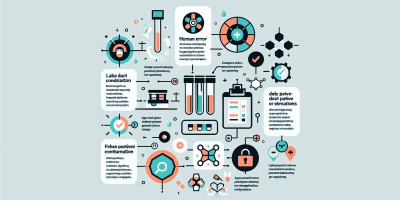
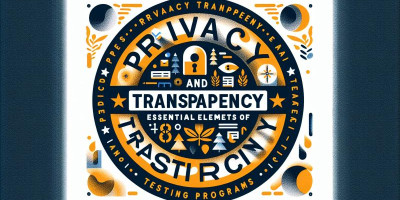
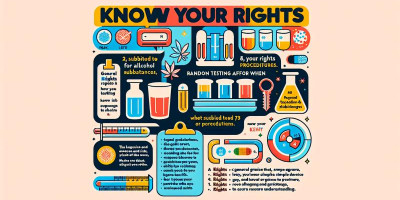
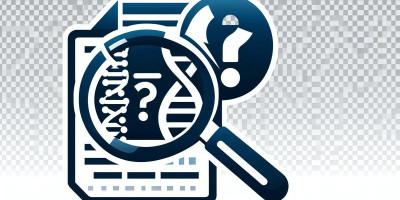
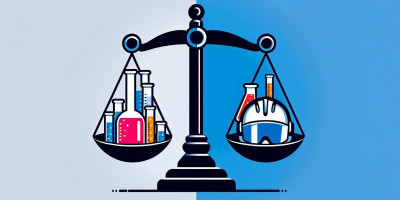

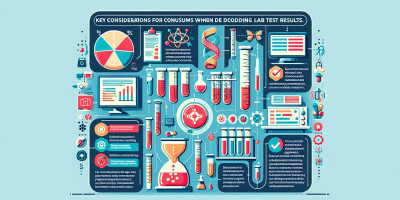
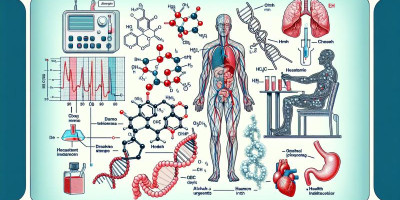
Are multi-panel tests more comprehensive than single-panel ones?
When it comes to diagnostic testing, both multi-panel and single-panel tests have their merits and limitations. Here's a breakdown to help you understand their differences and uses:
In summary, multi-panel tests are more comprehensive in scope, offering a broad picture when multiple conditions are suspected, while single-panel tests provide detailed insights for specific conditions. Your choice should depend on your specific health needs and the recommendations of your healthcare provider.
Rapid tests and lab-based tests for detecting viral infections, such as COVID-19, offer distinct advantages and limitations. Understanding these differences is crucial to make informed testing choices.
Lab-based Tests: These tests, like PCR (polymerase chain reaction) tests, are typically more accurate because they detect the virus's genetic material with high sensitivity and specificity. They are considered the "gold standard" for diagnosis but often require longer processing times and specialized laboratory equipment.
Rapid Tests: Often referred to as antigen tests, these can provide results in as little as 15 minutes. They are more convenient and accessible, but generally less sensitive than lab-based tests, particularly in people without symptoms or in the early stages of infection. A negative rapid test result may not completely rule out infection and may require confirmation with a PCR test.
When deciding which test to use, consider factors such as speed, accuracy needs, and potential follow-up testing. For critical or uncertain situations, consulting a healthcare provider can ensure appropriate testing and interpretation.
Yes, you can absolutely pay for medical testing out of pocket without using insurance. This option may be preferable for individuals who either don't have insurance or wish to keep certain health information private from their insurance provider. Here are some key points to consider:
Always consult with a healthcare professional to determine the most suitable testing options for your health needs.
How do tests identify synthetic drugs like K2 or Spice?
Synthetic drugs, such as K2 or Spice, often contain a variety of synthetic cannabinoids, which are difficult to detect using standard drug testing methods. These substances require specialized tests designed to identify their unique chemical structures. Here’s how testing typically works:
The process begins with obtaining a biological sample from the person suspected of using these substances. Common samples include urine, blood, or hair.
Initial screening tests are conducted to detect the presence of synthetic cannabinoids. These tests often involve advanced technologies such as gas chromatography-mass spectrometry (GC-MS) or liquid chromatography-tandem mass spectrometry (LC-MS/MS).
If the screening test indicates a potential positive, a confirmation test is conducted to precisely identify the specific substances present. Confirmation tests are highly sensitive and can differentiate between various synthetic cannabinoids.
Due to their constantly changing chemical makeup, it is challenging to maintain up-to-date detection methods. Laboratories continually update their protocols to keep pace with new synthetic formulations. For consumers, understanding the scope and limits of available tests is crucial for interpreting the results accurately and responsibly.
Anabolic steroids and performance enhancers are indeed subject to testing in many contexts, especially in sports and competitive environments where fairness and athlete safety are paramount.
Testing for these substances is crucial to ensure fair play and athlete safety. The use of anabolic steroids and PEDs can lead to significant health risks and an uneven playing field. By implementing rigorous testing, organizations strive to maintain the integrity of sports.
Testing procedures evolve continuously with advancements in technology and increased understanding of doping methods. It is advisable to stay informed about the specific rules and guidelines your organization or sport may have concerning anabolic steroids and performance enhancers.
Yes, you can change or cancel your appointment after booking. However, please keep in mind the following:
For further assistance, please visit our Help Center or contact us directly. We value your time and strive to provide convenient solutions for your scheduling needs.
Staying drug-free can be challenging, but numerous resources are available to assist you on this journey. Here are some of the most effective options:
Several 24/7 hotlines are available for immediate support. They can offer guidance, answer questions, and direct you to local resources.
Remember, seeking help is a sign of strength, and utilizing these resources can significantly aid in maintaining a drug-free life.
What happens during a drug test appointment?
Drug test appointments are common procedures in various settings, such as workplaces, medical facilities, or legal requirements. Understanding the process can help alleviate any anxieties. Here’s what you can typically expect during a drug test appointment:
Upon arrival, you will be asked to present a valid form of identification. Ensure you arrive on time to complete any necessary forms or paperwork.
The administrator will explain the test process, answer any of your questions, and ask you to sign consent forms.
After the sample is collected, the administrator will provide any instructions you need to follow afterward.
Test results are usually returned to the requesting company or authority rather than you personally. Result turnaround times may vary, but they generally take a few days to a week.
Having knowledge of what awaits can make the procedure smoother and stress-free. Remember, test administrators are there to maintain professionalism and confidentiality throughout the process.
Random testing is employed in various sectors to ensure safety, compliance, or health maintenance. Below are key points regarding limitations on the frequency of random testing:
The frequency of random testing may be subject to legal considerations. Regulatory bodies, such as government agencies or industry regulators, may impose specific rules to prevent excessive or unreasonable testing.
Organizations often establish their own testing policies. These policies might set a maximum number of random tests an individual can undergo within a certain period, such as a month or year.
The reason for testing can also determine frequency. Health-related testing may occur more often than testing for other purposes. Each context might have distinct guidelines.
Individuals often have rights regarding the testing process. It is crucial to be informed about these rights, including how to contest tests if they seem excessive or inappropriate.
Understanding these factors can help individuals manage and respond to random testing appropriately. Always consult relevant regulations or organizational guidelines for specific cases.
Can I choose which test to take, or will a professional decide?
When it comes to selecting a test, the decision can depend on several factors, including the nature of the test, your personal goals, and the guidance of a professional. Here are some key points to consider:
Ultimately, the choice might involve a combination of personal preference and professional advice. Should you have any uncertainties, it is always advisable to discuss your options with a qualified professional who can provide tailored recommendations based on your specific circumstances.
Preparing for the Test
Making an informed choice will not only lead to more accurate results but also contribute to your better understanding of the outcome, allowing you to make the most of your testing experience.
Missed Appointment Policy
Missing your scheduled testing appointment can affect your testing process and may incur additional fees. Below is what you need to know if you happen to miss your appointment:
We understand that unforeseen circumstances can arise, and our team is here to support you. Please reach out to us for any assistance you may need.
Over-the-counter (OTC) medications can potentially affect drug test results, depending on the specific test and the substances being screened. Many drug tests are designed to identify illegal drugs or prescription medication abuse, but there are factors to consider with regards to OTC medications.
While it is not common for OTC medications to cause issues, being aware of these factors and being proactive can help prevent misunderstandings with drug testing.
Yes, if you believe there is an error in your test results, you can dispute them. Here’s how you can proceed:
Before taking any action, thoroughly review your test results. Ensure that you fully understand the readings and any associated documentation or explanations provided.
Reach out to the testing provider's customer service team. Provide clear details about why you believe the results are incorrect. Have your test identification information handy for reference.
Ask the provider if they can re-evaluate your test or review the process used to ensure accuracy. Some providers may offer a second opinion or re-analysis.
If available, provide any additional documentation or evidence that supports your claim. This may include previous test results, medical records, or expert opinions.
By following these steps, you can address any discrepancies in your test results effectively and ensure peace of mind regarding your health data.
Booking an appointment in advance is recommended to ensure you secure a convenient time slot that meets your needs. How far in advance you need to book can depend on several factors:
As a general rule, the earlier you book, the more likely you are to secure an appointment that fits your schedule. Consider also checking the provider's cancellation or rescheduling policy, should you need flexibility in your plans. Always feel free to contact the provider directly if you have a specific time in mind, as they can offer the most accurate advice based on current availability.
Setting up random testing for a family member in recovery can be a valuable tool in supporting their journey and ensuring accountability. Here are some key points to consider:
Random testing refers to unscheduled and unpredictable drug or alcohol tests. It helps in maintaining accountability and can be a condition of treatment or parole.
By taking these steps, you can create a supportive environment that encourages successful recovery.
Frequently Asked Question:
Absolutely! As an individual consumer, you have the flexibility to request specific substances to be tested in your sample. Our lab services offer customized testing options to cater to your unique needs.
Contact us today to discuss your specific testing needs and how we can best serve you.

Schedule lab, health, drug, or alcohol tests easily with our online system!
access public site
Schedule DOT-regulated drug & alcohol tests with our online system!
access company site